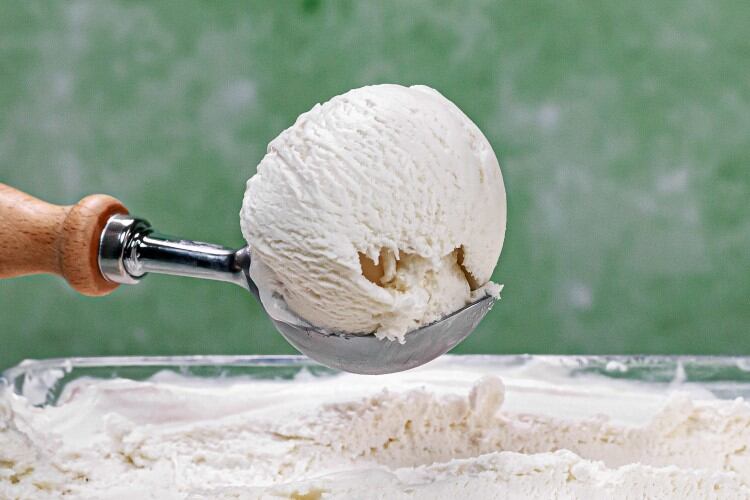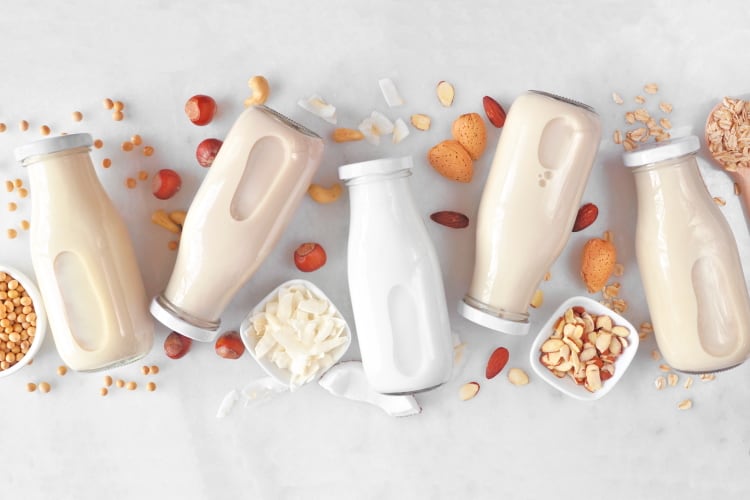Plant-based ice cream may be a smaller segment compared to the more traditional dairy fare, but sales are predicted to go up consistently at around 9.3% to 2031 according to Future Market Insights. With a focus on bringing more environment-friendly foods to the table, it’s no wonder that manufacturers are looking for appealing alternatives to the sumptuous dairy-based dessert without compromising on the texture and flavor properties that consumers seek.
Getting the right functionality in plant-based ice cream has proved difficult, however, and more innovation is needed to bring the category on par with dairy ice cream. ChickP Protein Ltd., an Israeli foodtech startup, says its chickpea protein isolate has all the properties that ice-cream makers need to achieve that illusive creamy texture, and more. What’s interesting here is that the ingredient acts both as an emulsifier and a stabilizer, removing the need to include additives such as guar gum, cellulose and modified starches, according to the company. It also brings nutrition benefits, with ChickP claiming that its IP technology extracts up to 90% pure protein out of the chickpea seed.
The ice-cream prototype was developed in cooperation with Vaniglia Ltd., an ice cream chain based in Israel, which leverages traditional ice cream manufacturing methods using natural ingredients.
Application manager Maor Dahan told DairyReporter how the team removed ‘some’ of the stabilizers typically used in plant-based ice cream manufacture. “In our lab, we have developed many prototypes, amongst which is non-dairy barista milk with excellent foaming,” he said. “We chose ice cream to demonstrate our protein isolate’s solubility and emulsification properties. One of our goals is to create label-friendly products and we have managed to do it in ice cream much easier than we expected, using fewer stabilizers and additives.”
To test the protein’s performance as stabilizer, the team removed one stabilizer at a time. “At the end of the process, the results showed that our protein can provide an effective answer to the stability of the texture of the ice cream throughout the shelf life of the product,” concluded Dahan. Meanwhile, Vaniglia CEO Assaf Blank described the plant-based ice cream as boasting ‘a truly creamy and rich texture similar to dairy ice cream’.
The flavor of choice was mascarpone, which was an accidental discovery for the application team, as Dahan revealed. “The story of the flavor we chose is quite funny and came from a mistake made in the lab. While we were developing the ice cream, we were also working on plant-based cheese, and one of the technologists accidentally added the culture of the cheese into the mass of the ice cream. The resulting taste surprised us and reminded us of the taste of sweet mascarpone cheese. From there came the idea to develop ice cream with the beloved flavor.”
Attracting flexitarians
ChickP Protein hopes its product will be ideal for flexitarians, who are ‘driving the plant-based food sector’ according to the company. ProVeg International research for The Smart Protein project reveals that around a third of flexitarians admit that they eat plant-based ice cream up to three times a month, and 42% would like to see chickpea as the main ingredient in plant-based foods.
Liat Lachish Levy, CEO of ChickP Protein, explained: “Although consumers today, especially flexitarians, looking to reduce their animal-based food consumption, they will not compromise on the full taste experience or on the nutritional values. Our proteins have all the benefits of plant-based proteins, without the downsides. High functionality, high nutrition value, and high sensory experience - neutral taste and smell, and they are also non-allergenic and non-GMO.”
From ice cream to fish
Chickpea legumes have found application beyond the dairy alternatives sector, including in seafood analogs and egg replacers. The company is also aiming to tap into various markets through its proteins, which are used in the egg replacement industry and would also be suitable for developing meat and seafood analogs according to the firm thanks to its versatile functional properties and ‘very neutral’ taste and smell.
Levy concluded: “We plan to expand our commercial proteins portfolio to address broad applications in need of an improved solution. Our breakthrough technology and IP-protected process cover not just our unique isolate products but also different level of protein extraction that have useful attributes. In terms of global expansion, we are focused on strategic partnerships that grow our customers’ opportunities and reach.”



